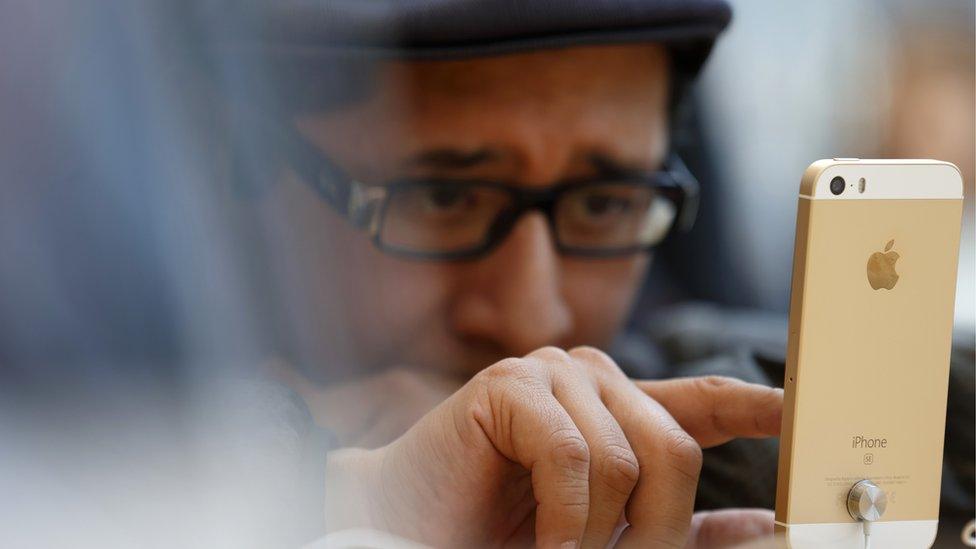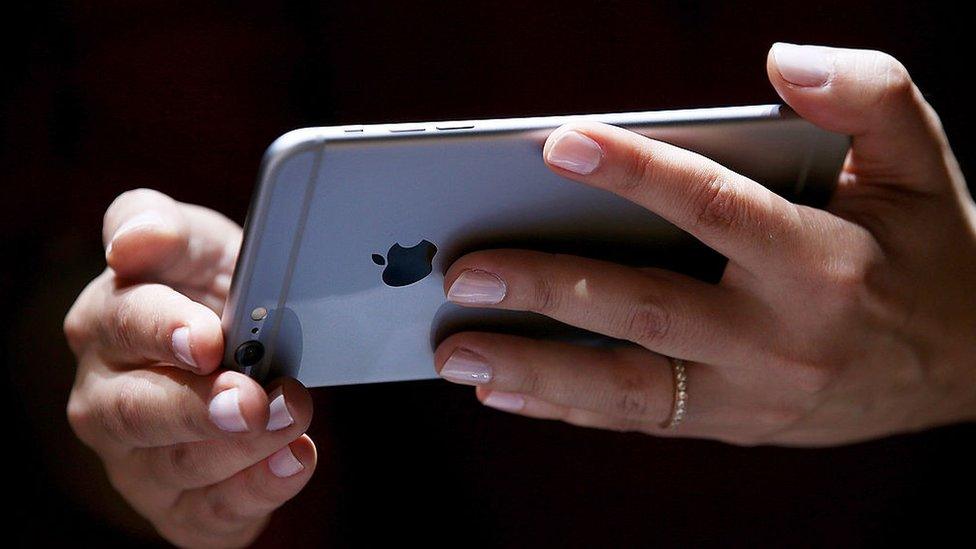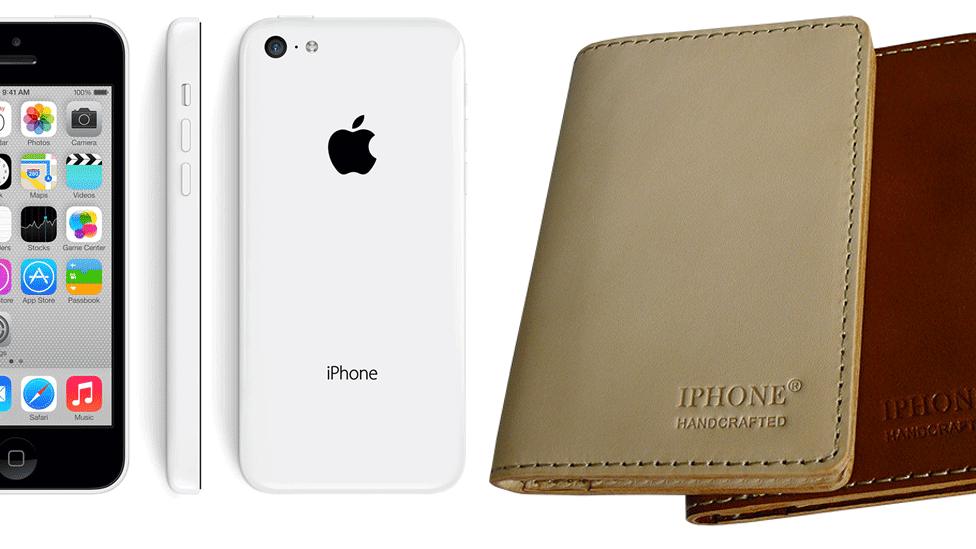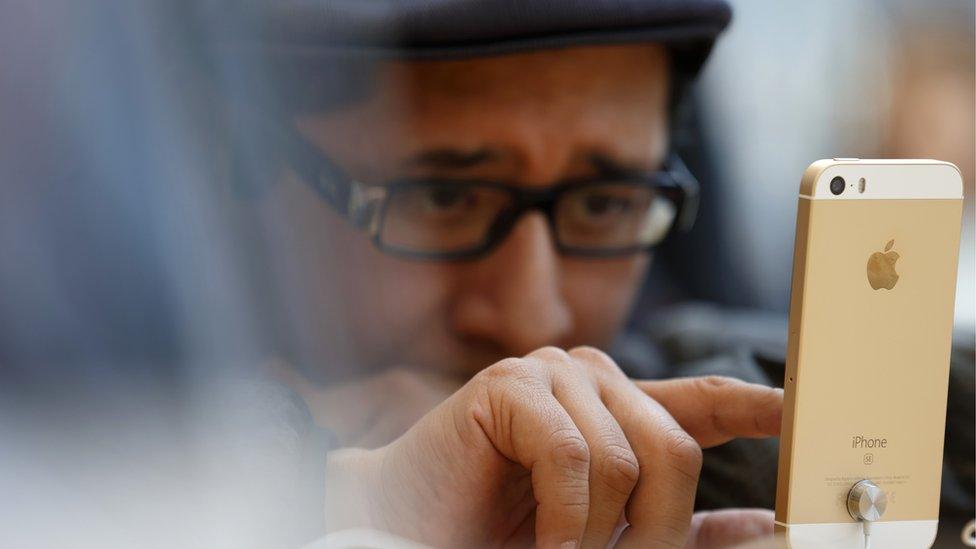Apple sees iPhone sales drop again but beats forecasts
- Published

Apple has reported a second consecutive quarter of falling iPhone sales, but the 15% drop was not as bad as analysts had feared.
The US tech giant, external sold 40.4 million iPhones in its third quarter, slightly above forecasts of 40.02 million.
Apple chief executive Tim Cook said the results reflected "stronger customer demand... than we anticipated".
The firm said it expected sales to fall again in the fourth quarter to between $45.5bn (£34bn; €41.4bn) and $47.5bn.
Demand for Apple's flagship product has been slowing since the second quarter when the firm reported the first drop in iPhone sales since their 2007 launch.
The iPhone makes up for around two-thirds of Apple's sales and accounts for even more of its profits.
The slowdown in iPhone sales sent profit down 27% to $7.8bn in the three months to 25 June, while revenues fell 14.6% to $42.4bn.

iPhone 6 sales surged 35% in the second quarter last year
Apple's sales in Greater China - defined by the company as China, Hong Kong and Taiwan - plunged 33%.
The firm blamed economic uncertainty and people not upgrading their phones as often for the drop.
China accounts for almost a quarter of Apple's sales, more than all of Europe combined.
"It is very clear that there are some signs of economic slowdown in China, and we will have to work through them.
"We understand China well and we remain very, very optimistic about the future there," said Apple chief financial officer Luca Maestri.
Apple shares surge
Results were also hit by the impact of a stronger dollar.
Nonetheless, shares, which have fallen almost 20% over the past year, rose over 7% in after-hours trading because the firm's overall performance was not as bad as analysts had expected.
Mr Maestri said comparisons to the second quarter last year, when iPhone 6 sales surged 35%, made its performance seem worse than it was.
He also pointed to its services business, which includes the App Store, Apple Pay, iCloud and other services, as a bright spot.
The division made nearly $6bn in revenue, up 18.9% from the same time last year, and is now the firm's second-largest sales generator after the iPhone.
The shift is good news for the firm because it allows it to make more money from its existing users.
- Published4 May 2016

- Published1 April 2016
- Published27 April 2016
